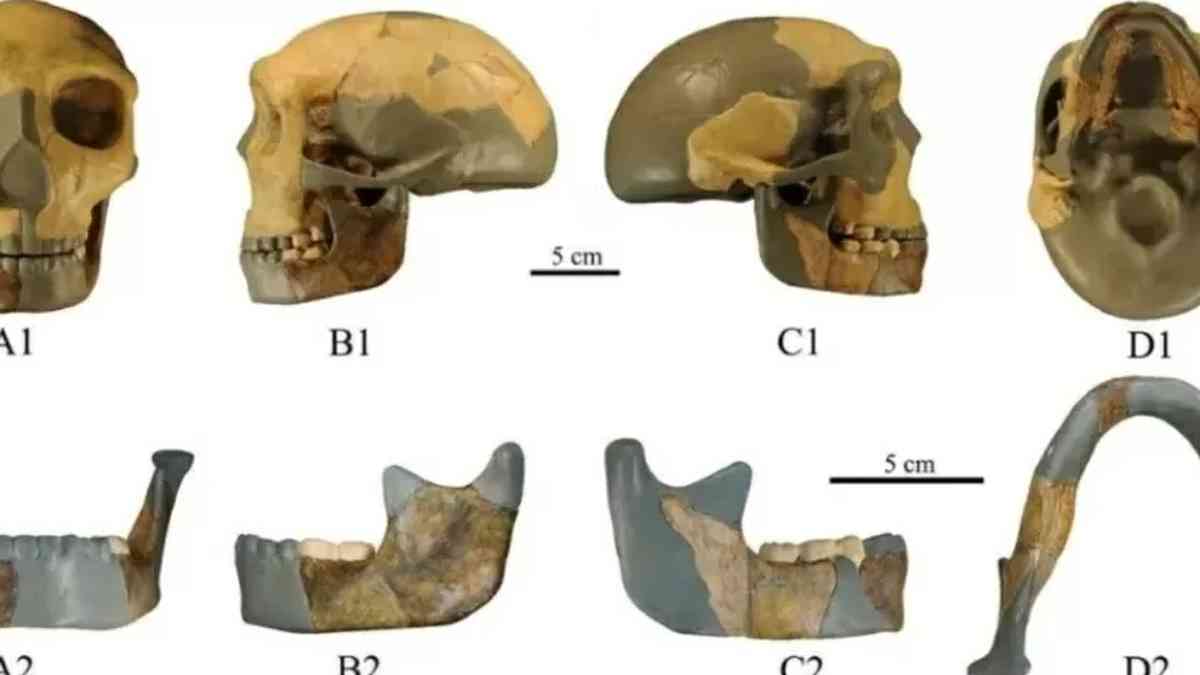Researchers from the Chinese Academy of Sciences have discovered a 300,000-year-old skull that is said to be unlike any other human fossil ever found. The discovery reveals evidence of a hitherto unknown human lineage, different from those already known of Neanderthals, Denisovans, and Homo sapiens (modern humans).
The study was published in the Journal of Human Evolution. Researchers from China, Spain and the United Kingdom discovered the collection of bones, more specifically the cranial and mandibular part, in the Hualongdong region, in 2015, along with 15 other specimens from the Middle Pleistocene period – from 82,800 to 355,000 years ago.
Scientists determined that the fossil, identified as HLD 6, was of a person between 12 and 13 years old. An evaluation determined that the dissection of HLD 6 is ‘unexpected’. HLD 6 has characteristics similar to those of modern humans.
Others, such as the lack of a “true chin” and the curvature of the bones, point to similarities with Denisovans, which split from Neanderthals nearly 400,000 years ago. The study authors said more investigations need to be done to confirm that HLD 6 does indeed belong to a unique group in the human evolutionary lineage.

“Wannabe internet buff. Future teen idol. Hardcore zombie guru. Gamer. Avid creator. Entrepreneur. Bacon ninja.”

